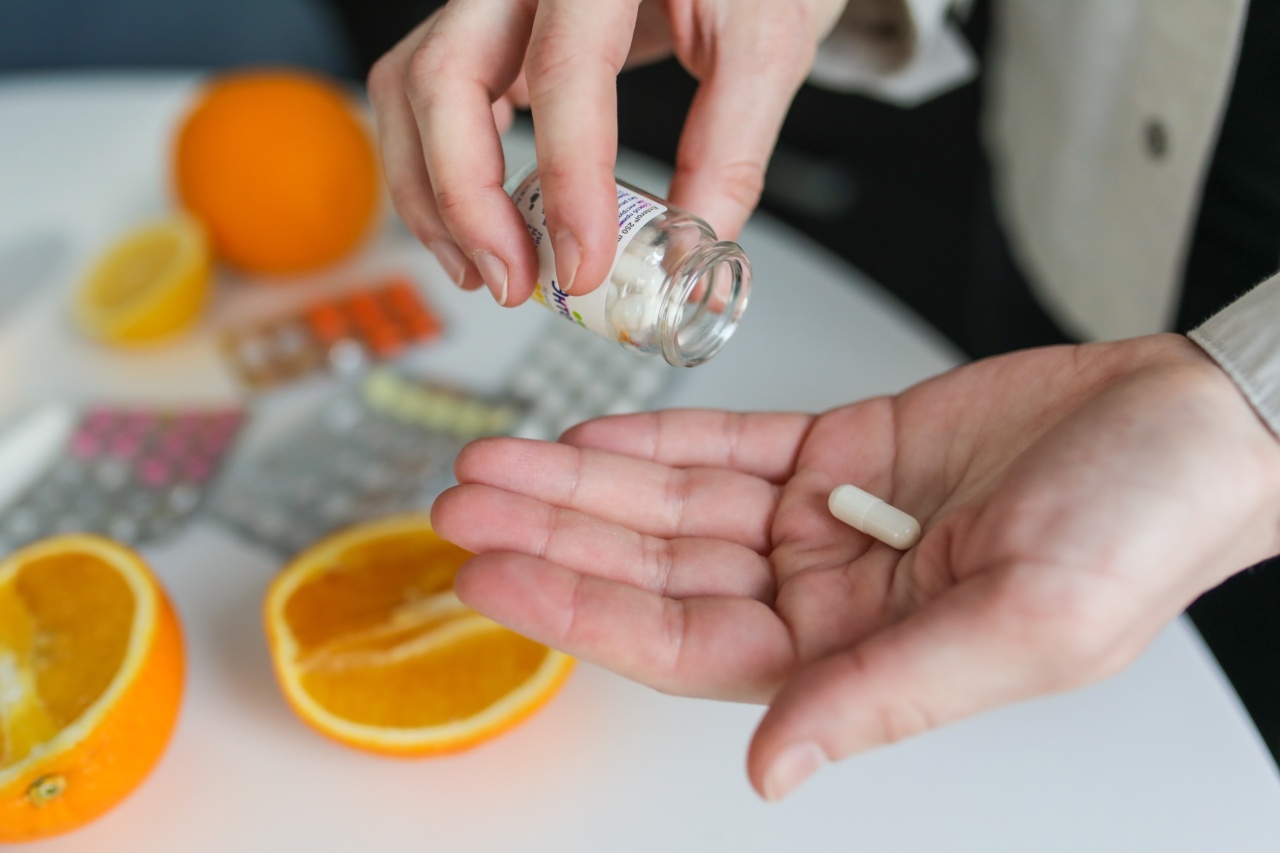Vitamin D is a vital nutrient that our bodies need to function properly and stay healthy.
It is responsible for regulating the absorption of calcium and phosphorus, which are essential minerals for the development and maintenance of healthy bones and teeth. Vitamin D also helps boost our immune system, improves muscle function, and prevents chronic diseases such as osteoporosis and diabetes.
The primary source of vitamin D is through our skin as it produces it when exposed to sunlight. However, as we spend more time indoors and use sunscreen, many people do not get enough of this nutrient, especially during the winter months.
Therefore, taking a vitamin D supplement may be necessary.
Who is at Risk for Vitamin D Deficiency?
There are several groups of people who are at higher risk for vitamin D deficiency, including:.
- Individuals with darker skin
- Elderly individuals
- Individuals who live in northern climates with less sun exposure
- Individuals who regularly use sunscreen or cover their skin with clothing
- Individuals with certain medical conditions such as Crohn’s disease and celiac disease
How Much Vitamin D Do You Need?
The recommended daily amount of vitamin D varies depending on age, sex, and health status. The National Institutes of Health (NIH) recommends the following:.
- Infants (0-12 months): 400-800 IU/day
- Children (1-18 years): 600-1,000 IU/day
- Adults (19-70 years): 600-800 IU/day
- Elderly (71+ years): 800-1,000 IU/day
- Pregnant or breastfeeding women: 600-800 IU/day
When to Take a Vitamin D Supplement
If you are at risk for vitamin D deficiency or are not getting enough of this nutrient through your diet or sunlight exposure, taking a vitamin D supplement is a great way to ensure that you are meeting your body’s daily needs.
However, it is essential to talk to your healthcare provider before starting any new supplements, including vitamin D.
They can help you determine the proper dosage for your needs and any potential interactions with other medications or medical conditions you may have.
It is also important to note that taking too much vitamin D can be harmful to your health. The NIH recommends that adults should not exceed 4,000 IU/day, and infants should not exceed 1,000 IU/day.
Types of Vitamin D Supplements
There are two primary forms of vitamin D supplements: vitamin D3 and vitamin D2. Vitamin D3 is the more natural and active form, which is the same type of vitamin D produced in the skin when exposed to sunlight.
Vitamin D2 is a synthetic form of vitamin D, which is less potent than vitamin D3 but still effective.
The majority of vitamin D supplements available on the market are vitamin D3, which is why it is often recommended over vitamin D2.
However, some individuals following a vegan or vegetarian diet may prefer a vitamin D2 supplement derived from plant sources.
Benefits of Vitamin D Supplements
Vitamin D supplements have several potential health benefits, including:.
- Supporting healthy bones and teeth
- Improving muscle strength and function
- Boosting immune system function
- Reducing the risk of chronic diseases such as osteoporosis and diabetes
- Reducing the risk of certain types of cancer, including breast and colon cancer
Risks of Vitamin D Supplements
While vitamin D supplements are generally safe, taking too much can lead to potential health risks, including:.
- Hypercalcemia (elevated levels of calcium in the blood)
- Constipation
- Kidney stones
- Weakened bones and fractures
- Interactions with certain medications, including corticosteroids and some cholesterol-lowering drugs
The Bottom Line
Vitamin D is an essential nutrient that supports many vital functions in our bodies.
While it can be obtained through sun exposure and diet, many individuals may benefit from taking a vitamin D supplement to ensure that they are meeting their daily needs.
However, it is crucial to talk to a healthcare provider before starting any new supplements and to follow the recommended daily dosage to avoid potential health risks.































